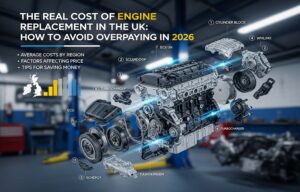Gasoline vs. Diesel Vehicle Maintenance: What Every Driver Needs to Know

Looking to buy your next vehicle? Whether you’re considering a gasoline-powered car or a diesel one, it’s important to understand that maintenance requirements differ based on the type of fuel your vehicle uses. Here, we’ll break down some of the key distinctions in the upkeep of gasoline and diesel vehicles.
At the core of it all, the main differences between these two vehicle types lie in the engine. Both gasoline and diesel engines use internal combustion, but they have different designs and components. For starters, gasoline engines rely on spark plugs to ignite the fuel-air mixture during compression. Diesel engines, on the other hand, don’t use spark plugs but instead have glow plugs to preheat air and use extreme compression to ignite the fuel.
When it comes to maintenance, both spark and glow plugs need to be inspected regularly to ensure the ignition system works properly. The good news for diesel owners is that glow plugs tend to last longer — typically up to 100,000 miles. Spark plugs in gasoline engines have a much wider range of lifespan, varying from 18,000 to 100,000 miles, depending on the vehicle make.
Not only do glow plugs last longer, but diesel engines as a whole generally have a longer life expectancy than gasoline engines. This is largely due to their sturdy design, superior lubrication, and fewer moving parts. Diesel engines can often run for up to 200,000 miles before needing major repairs, which is about double what gas engines typically offer. Though gas-powered vehicles may have lower upfront maintenance costs, diesel vehicles’ longevity can help offset their initial higher price.
One more difference lies in the cooling systems of these engines. Diesel vehicles require specialized coolants with better heat resistance, and they need more frequent flushes to prevent harmful buildup. Gasoline engines, on the other hand, can operate on standard coolants and require less frequent maintenance for their cooling systems.
Understanding these differences can help you make an informed decision when choosing your next vehicle. For more in-depth information, check out the accompanying resource provided by Powerhouse Diesel.





